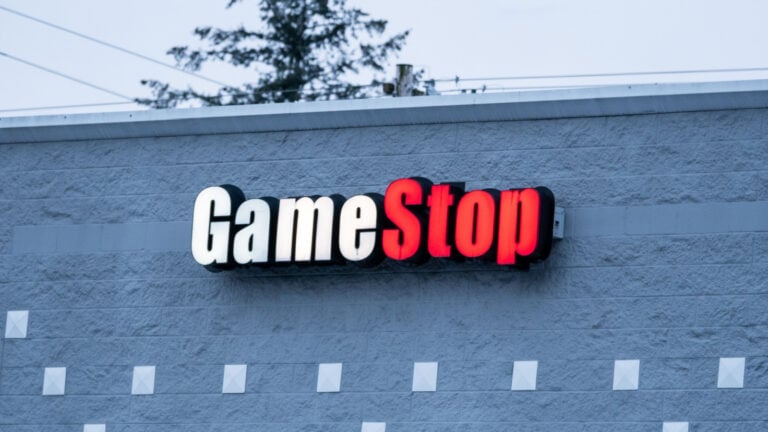Hello, Reader.
Thomas Yeung, here.
At Smart Money, we typically cover the more “traditional” methods of global macro analysis. Rising electric vehicle production in China, for instance, increases demand for copper and sends metal prices higher. It might even have knock-on effects on global currencies.
The global macro investing thesis tells us that every cause has some predictable effect, and smart investors can often get ahead of that curve.
But global macro investing also has a “reflexive” component, where the effect creates the cause. It’s an unintuitive bit of logic that’s created incredible riches for those who know it well.
For example, George Soros famously “broke the bank of England” in 1992 by creating a self-fulfilling prophecy in the British pound. Traders saw prices declining, and sold off their pounds as a result. This created a reinforcing spiral and allowed Soros to walk away with millions. Short squeezes, gamma squeezes, and bidding wars all run on the same principle.
Today, that “reflexive” component is alive and well in so-called meme stocks.
These companies trade on their social media popularity, and rising prices can create additional buying pressure as latecomers jump in. In other words, the original buyers who cause an initial price spike end up becoming the cause of rising meme stock prices.
In today’s Smart Money, let’s explore this concept a bit more.
Then I’ll show you how this trade is playing out in the most famous meme stock, GameStop Corp. (GME)… and how you, too, can use these principles for some surprising gains.
Name of the Game(Stop)
Last Sunday, meme stock leader Keith “Roaring Kitty” Gill posted to social media that he had accumulated an enormous position in GameStop, a company that made him both famous and wealthy in the 2021 meme stock craze. (There’s even a Sony Pictures movie – Dumb Money – about the story… which you can watch now on Netflix.) Gill, posting on Reddit’s r/superstonk forum, said he had accumulated 5 million shares of the video game retailer, putting his underlying stake at $115.7 million.

To the moon!
Perhaps Gill’s more interesting positions, however, were the $20 call options expiring June 21 that he concurrently disclosed. At the time, these calls were worth $5.48 each, or $65.7 million total.
Today, these calls are now worth $169 million, a 150% increase.
That’s because these $20 options pay out the difference between the GME stock price (roughly $33 today) and strike price ($20) on the date of expiration (June 21). If GameStop remains at $33 through expiration, Gill would receive $13 per contract. And because the call options still have two weeks to go, traders are willing to buy these contracts today from him at an additional $1 premium per contract. That brings each call option value to roughly $14 each.
This might seem complicated at first. But essentially, these $20 options are…
- A leveraged bet on the direction of GameStop. Gill’s option returns of 150% have far outpaced the 57% return seen by the underlying stock.
- A bet on the volatility of GameStop. The $1 premium per contract can also increase if volatility goes up. That’s true even if GameStop plummets to $15 tomorrow.
It’s why many people consider owning a call option on a stock the same as owning 100 shares plus 1 put. You’re gaining a leveraged position on a stock, and some exposure to the implied volatility of the underlying security as well.
That’s why Gill’s recent purchase of GameStop options is so notable. Not only did he know shares would go up… he also knew when they would… and foresaw the spike in volatility his position would bring.

Most retail investors care little about these details. To them, options are just a tool to get rich. It’s why so many amateur investors concentrate on zero-day options (those that expire in less than a day) and those expiring near a company’s earnings report date. If a stock moves 10% after earnings, an armchair investor could theoretically generate 20%… 30%… even 50% returns from options instead.
But these short-dated options are more like gambling because if the stock doesn’t move as expected, the options can expire worthless and the investor will walk away with nothing. For example, few companies consistently beat earnings. And those that do often have these beats already priced in. Ferrari NV (RACE), for example, saw its shares decline 4% last month despite beating first-quarter earnings by 4% because investors were so used to seeing double-digit beats from the Italian automaker.
Or in the case of GME, its success is largely dependent on if Gill likes it. The stock’s meteoric rise since mid-May only began after Gill began posting memes on X (formerly Twitter)… and he hadn’t even mentioned GameStop.
To make money on these short-term bets, you need to have at least one of these:
- Luck. Most short-term options have casino-like payouts, so it pays to be lucky.
- Computing Power. High-frequency traders must trade thousands of these positions to make consistent gains.
- Fame. Or you could be so well known on social media that even screenshots of your stock positions can cause a stampede.
The Speculator Difference
That’s not to say you should avoid options. In fact, one of Eric’s favorite investing tools – long-dated options (also known as LEAPS) – are far safer, more reliable, and just as lucrative a way of making these bets… especially if you know the underlying companies well. Stable companies with low implied volatilities can suddenly turn around and become profit machines. This raises both the intrinsic value of an option and the additional implied volatility premium.
These bets are also full of “reflexive” reactions from the market.
For instance, back in September in Eric’s The Speculator trading service (members can log in here), he recommended call options on Alcoa Corp. (AA), a Pittsburgh-based aluminum producer, as a bet on rising commodity prices. As aluminum prices began to rise, Alcoa was able to use its now-valuable shares to buy up rival Alumina Ltd., which sent prices of the metal even higher on the prospect of market consolidation. So, the initial cause of the merger was rising aluminum prices… not the other way around.
Since Eric’s initial recommendation, his calls have gone up over 100%. He recently took partial gains of 131%.To learn more about trading long-date options – and Eric’s other LEAPS recommendations at The Speculator – watch this video.
Regards,
Thomas Yeung, CFA
Markets Analyst, InvestorPlace.com

